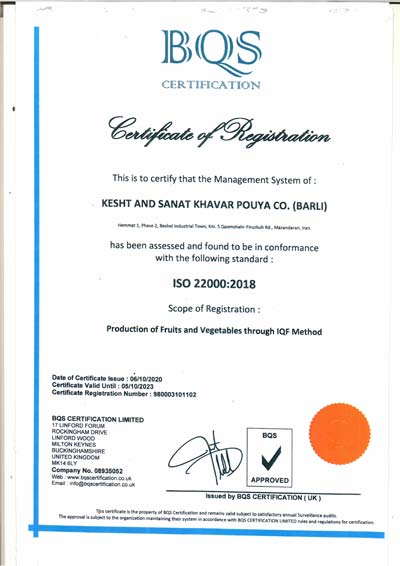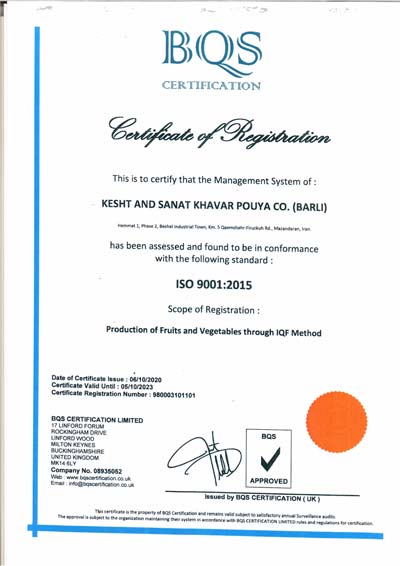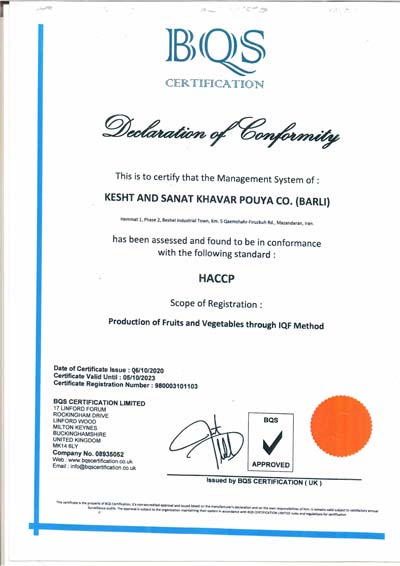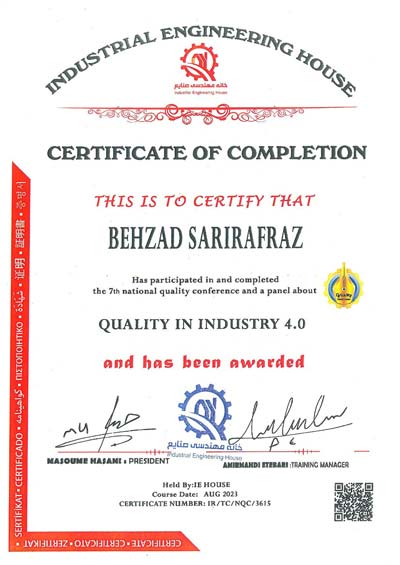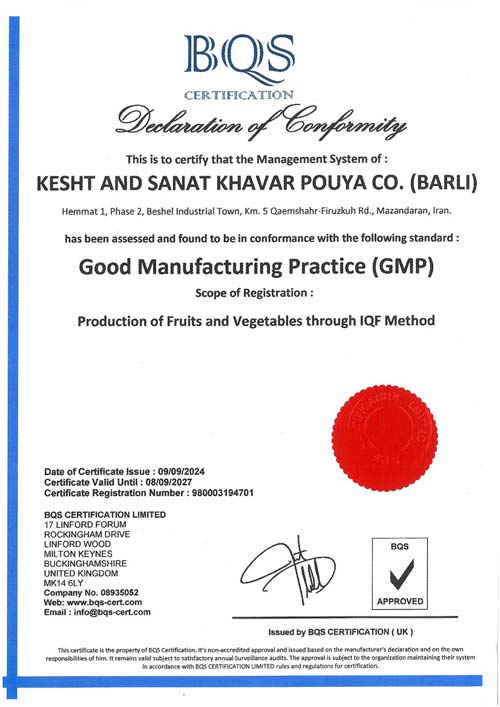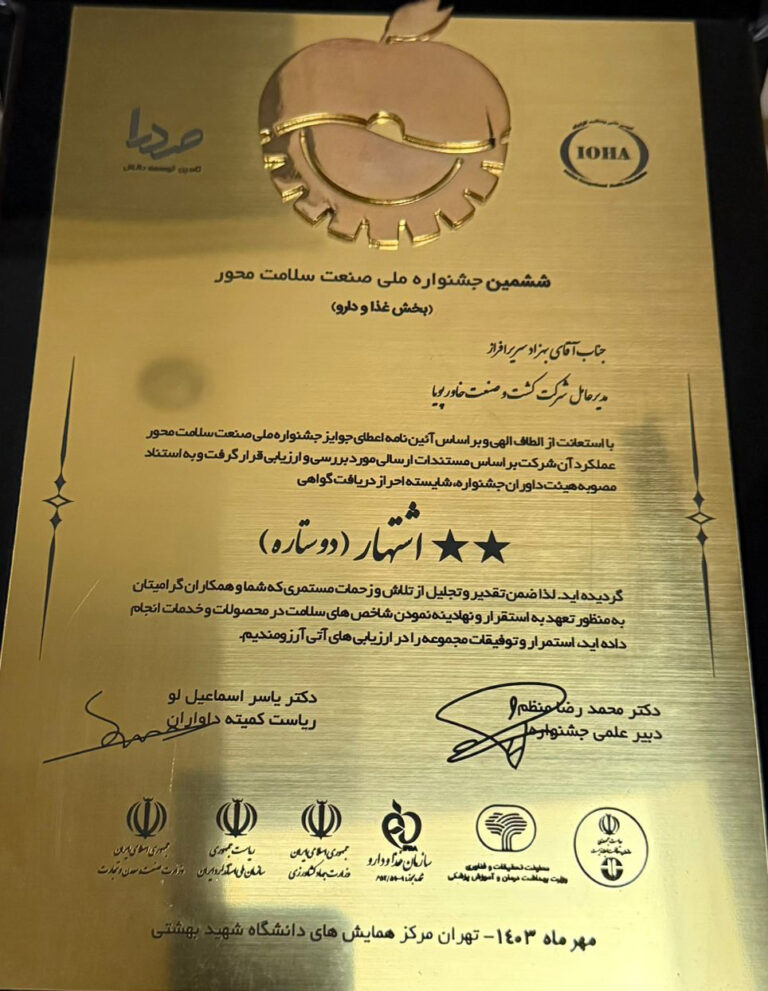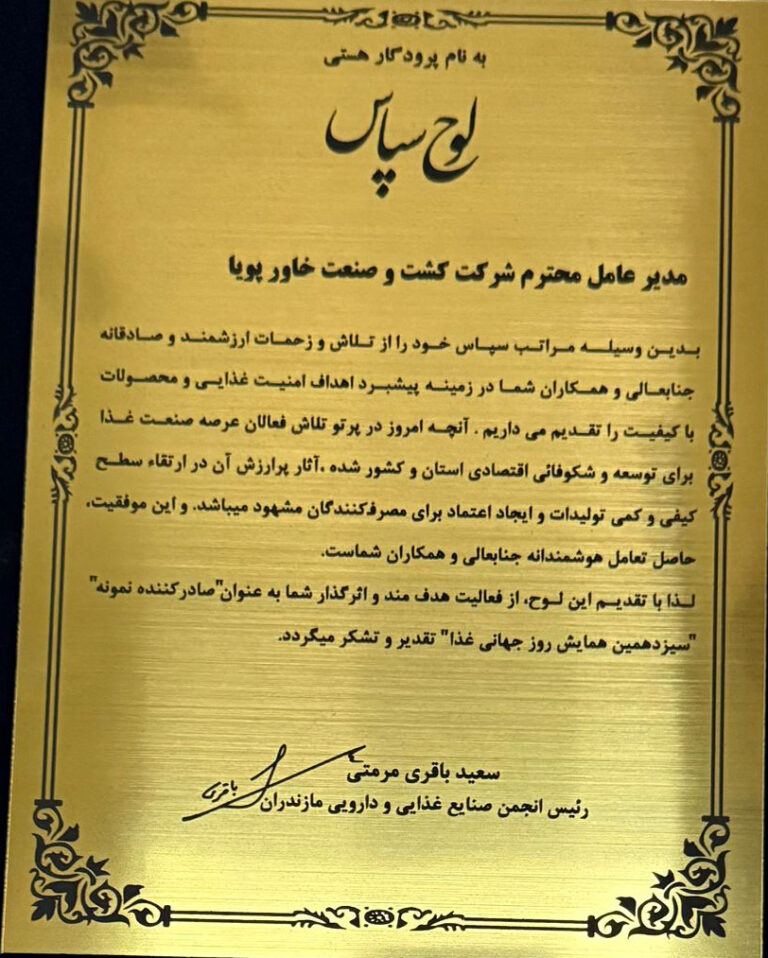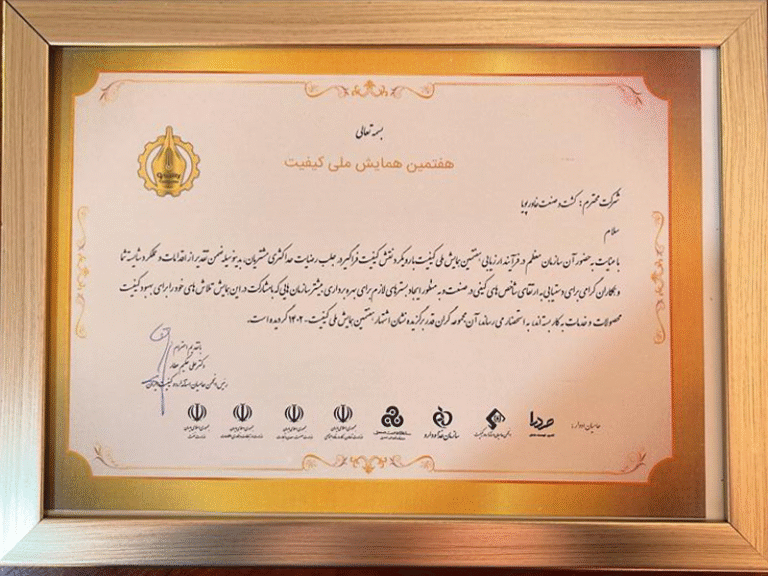History of Khavarpouya Agri-Industry
This company was established in 2006 (1385 in the Persian calendar) to produce a variety of frozen agricultural products using advanced IQF (Individual Quick Freezing) technology. As the first factory of its kind in Mazandaran province, it became operational by the end of 2009 (1388).
The facility, covering an area of over 6,000 square meters, was equipped with advanced cold storage units during its initial phase to store products. It was designed to supply raw materials for the domestic food industry and contribute to exports. The high production capacity of the factory allows for the cultivation of vast agricultural lands, marking a significant step in the development of agricultural processing industries.
With carefully planned strategies, the production complex sources its raw materials based on the cultivation and harvest seasons, selecting the best seeds under the supervision of its experts. All products are manufactured with rigorous oversight and meet high-quality standards.
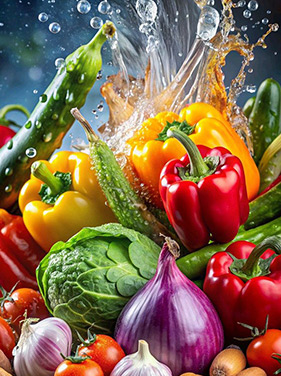
Types of Products Manufactured by Khavarpouya Agri-Industry Complex
Frozen Agricultural Products: Production of consumer-demanded frozen vegetables such as peas, green beans, fava beans, carrots, celery, okra, potatoes, onions, sweet corn, bell peppers, cauliflower, and other agricultural products.
Leafy Vegetables: Production of leafy greens like parsley, dill, coriander, leek, mint, and more.
Mixed Vegetables: Production of vegetable mixes such as Ghormeh Sabzi (herbs for a traditional Persian stew), Kuku Sabzi (herbs for a Persian frittata), Sabzi Polo (herbs for herb rice), Ash herbs (for traditional soups), fish herbs, Kufteh herbs (for meatballs), and others, catering to families, restaurants, hotels, and more.
Fruits: Production of various fruits like strawberries, sour cherries, cherries, apricots, peaches, kiwis, and others. These fruits can be used to garnish dishes, prepare desserts, make ice cream, and produce juices and jams.
The large cold storage facilities of the production complex ensure that incoming products are initially stored at above-zero temperatures with excellent quality, prepared for production, and then transferred to sub-zero cold storage, ready for market distribution.
Individual Quick Freezing (IQF) Method
The IQF method preserves the natural properties of products, such as taste, color, and aroma, by preventing the formation of ice crystals within the product’s structure. This ensures the freshness of the products, which can be stored at -18°C for up to two years.
In this method, raw materials are first washed and sanitized using automated systems without manual intervention. They are then blanched to deactivate enzymes and guided to a specialized freezing tunnel. Inside the tunnel, the products are exposed to a fluid stream of cold air at -35°C, freezing them individually and separately. This process inhibits the growth of microorganisms, resulting in a high-quality, long-lasting product ready for market distribution.
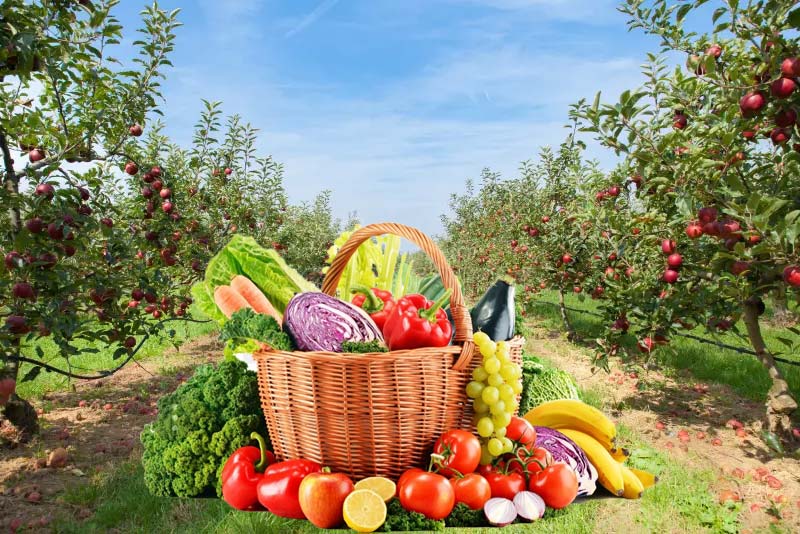
Benefits of Quick Freezing Products
- Year-Round Availability: Easy and consistent access to the produced products throughout the year.
- Supply of High-Quality Raw Materials: Reliable access for food production factories, restaurants, hotels, catering services, and more.
- Reduction of Agricultural Waste: Minimizes waste in the agricultural sector and lowers transportation costs.
- Nutrient Preservation: Maintains the nutritional value of products over the long term and ensures hygienic production.
- Export Opportunities: The high shelf life makes the products suitable for export.
- Environmental and Household Benefits: Reduces environmental pollution and promotes family hygiene by preventing contamination. Waste materials at the factory are efficiently repurposed.
The complex features a well-equipped laboratory for quality control of both incoming raw materials and final products. All stages of production are overseen by food science experts to ensure the highest quality standards are met.


